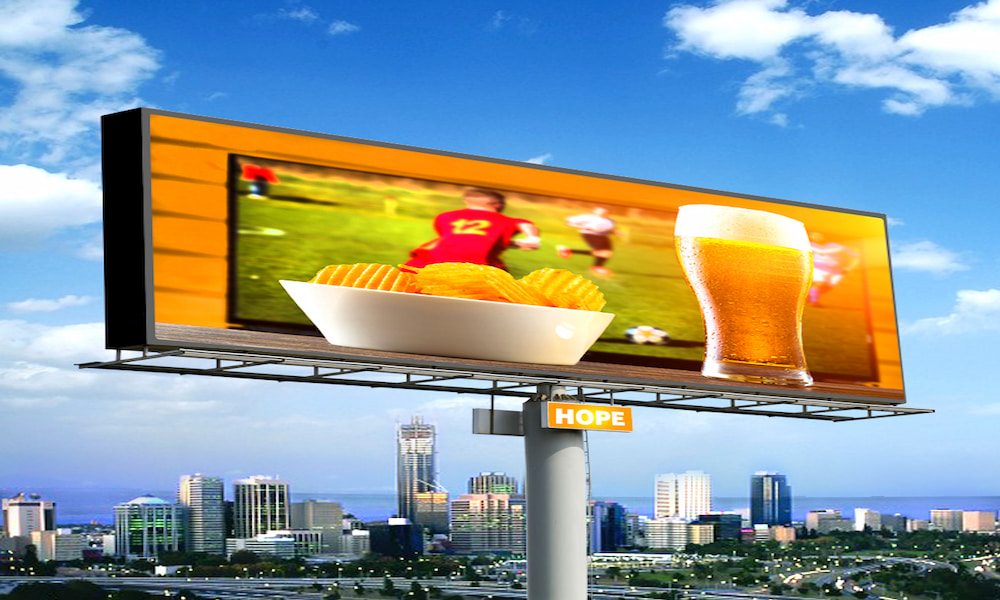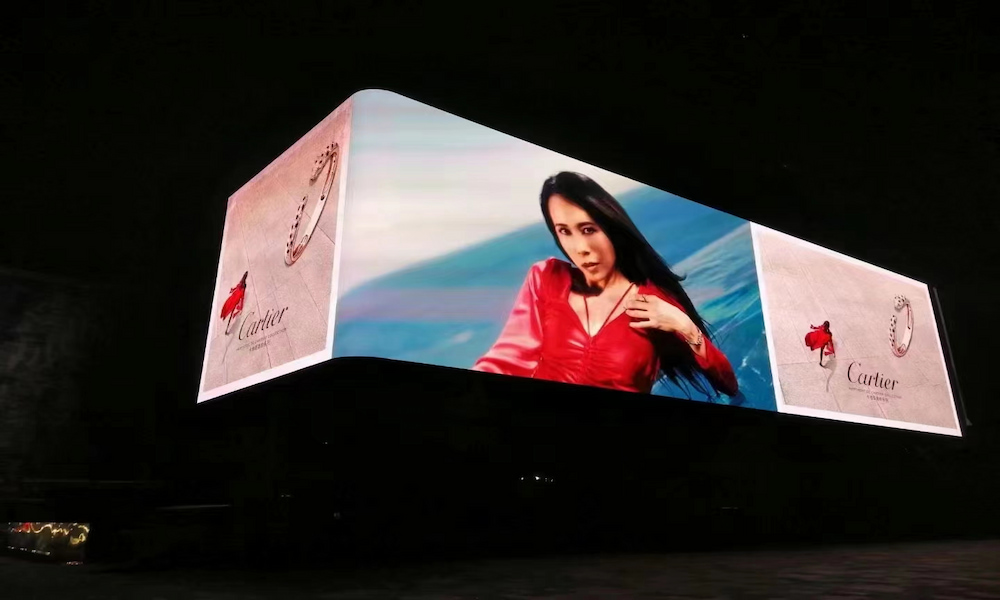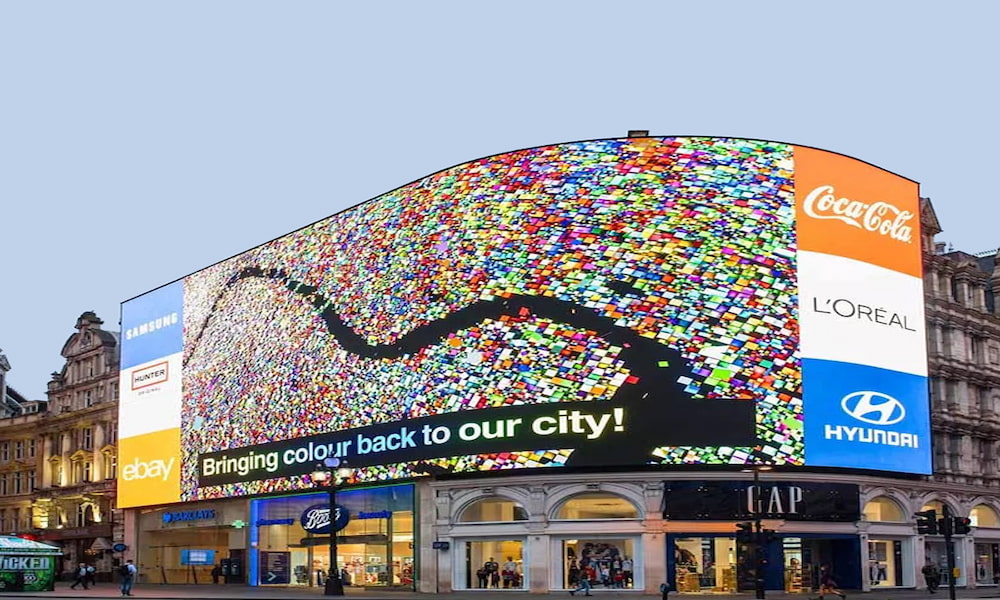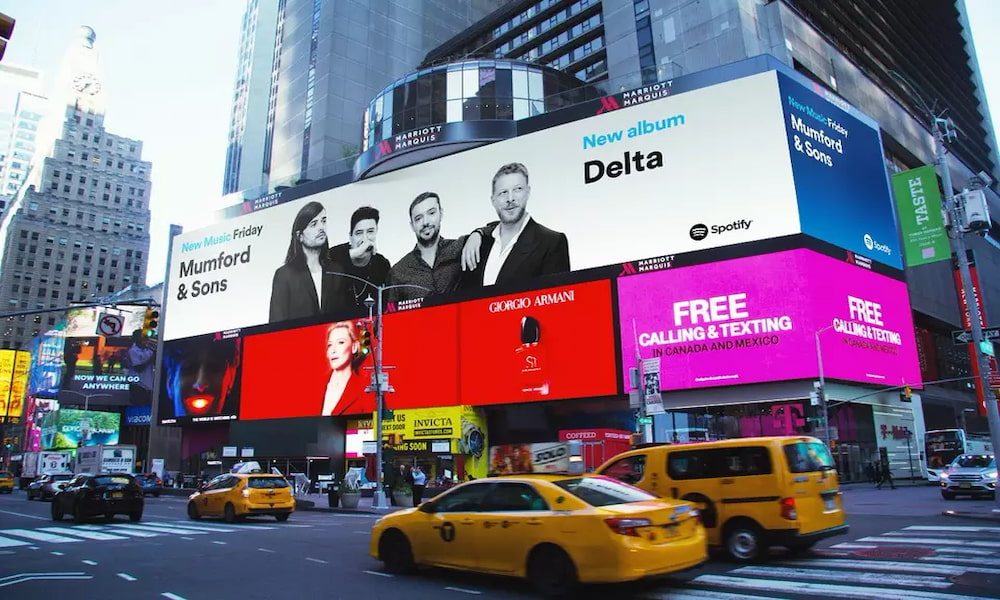Outdoor LED Display: Revolutionizing the Future Visual Experience
With the rapid development of technology, outdoor LED screens are gradually becoming an indispensable part of our lives. This new type of display technology not only plays a crucial role in advertising, events, and sports events but also demonstrates great potential in urban landscapes, beautifying the environment, and more. So, what are outdoor LED screens, how do they work, what are their applications, and what are the future trends? This article will delve into this topic.

1. What are Outdoor LED Screens?
Outdoor LED screens are display screens manufactured using Light Emitting Diode (LED) technology, primarily for outdoor environments. Compared to traditional Liquid Crystal Display (LCD) screens, LED screens have higher brightness, contrast, and wider viewing angles, making them more suitable for use in bright sunlight. Additionally, LED screens have better weather resistance, able to withstand harsh weather conditions like wind, rain, and sun exposure.
2. Working Principle of Outdoor LED Screens
The working principle of outdoor LED screens is relatively simple. They consist of thousands of LED light sources arranged in a matrix. When electric current passes through these LED components, they emit light. The color and brightness of the screen can be achieved by adjusting the intensity of the electric current. Typically, the combination of the three basic colors - RGB (Red, Green, Blue) - can create a wide range of color effects to meet various advertising and display needs.
Outdoor LED screens are usually equipped with a range of control systems that allow users to achieve remote control, content updates, and real-time display. For instance, during sports events, the screen can display real-time scores, player information, and advertisements. This high level of flexibility makes LED screens widely applicable in various scenarios.

Applications of outdoor advertising screens
Outdoor LED screens have a wide range of applications, including some primary scenarios:
- Advertising: One of the most common applications of outdoor LED screens is commercial advertising. The high brightness and vibrant colors make LED screens clearly visible even in sunlight, attracting a large audience. Businesses can use dynamic ads to showcase new products, promotional activities, etc., effectively increasing brand exposure.
- Sports Events: In large sports venues and competition sites, outdoor LED screens provide real-time match videos, score statistics, and venue information. Audiences can have a more intuitive view of the game process, enhancing the on-site atmosphere.
- Public Information Display: LED screens are often installed in city squares, transportation hubs, and other public places to display public information, including traffic directions, weather forecasts, emergency notifications, etc. This method effectively optimizes information transmission efficiency and enhances the intelligence of public facilities.
- Cultural Performances: In large cultural performances and concerts, advertising screen outdoor serve as backgrounds or auxiliary displays that can change in real-time according to different performance effects, enhancing the visual impact of the performance and attracting audience attention.
- Exhibition Displays: In various exhibitions and expos, outdoor LED screens serve as a display tool to showcase products, corporate images, and cultural and artistic content, attracting visitors to learn and participate.

4. Advantages of Outdoor LED Screens
As a new era display technology, outdoor LED screens have the following advantages:
- High Brightness: LED screens have extremely high brightness, maintaining excellent display effects even under strong lighting conditions. This makes them perform well in outdoor applications, effectively attracting the attention of passersby.
- Energy-saving and Eco-friendly: Compared to traditional display technologies, LED technology is more energy-efficient with lower average power consumption and a longer lifespan, usually exceeding 100,000 hours, reducing the frequency of replacements and maintenance costs.
- Wind and Rain Resistance: In design, outdoor LED screens usually have waterproof and dustproof functions. Their specific materials enable them to operate safely and stably under various harsh weather conditions.
- Flexible Installation: Outdoor LED screens can be flexibly installed in terms of orientation, size, and shape according to requirements, making urban facilities and commercial spaces more personalized.
- Real-time Updates: Through the internet or other control systems, users can update display content in real-time without changing physical billboards, greatly improving the timeliness and flexibility of advertising information.
5. Future Trends of outdoor led screen panels
With the continuous advancement of technology, the future development trends of outdoor LED screens can be summarized as follows:
- Intelligence: In the future, outdoor LED screens will increasingly combine with AI and Internet of Things (IoT) technologies to achieve more precise customer data analysis and display different contents based on different time periods and audience characteristics, enhancing the specificity and effectiveness of advertisements.
- Lightweight and Thin: With the development of material technology, the weight of outdoor LED screens will gradually decrease, and the volume will become smaller, bringing convenience to installation and maintenance.
- High Resolution: With technological progress, future LED screens will have higher resolutions, resulting in more delicate image effects and increased attractiveness.
- Augmented Reality: Against the backdrop of the gradual maturity of Augmented Reality (AR) and Virtual Reality (VR) technologies, outdoor LED screens will be combined with these technologies to create richer and more interactive user experiences.
- Sustainable Development: With the increasing awareness of environmental protection, future outdoor LED screens will apply more renewable materials, follow sustainable development principles in energy management and production processes, and reduce the burden on the environment.

Conclusion
In conclusion, outdoor LED screen, as an emerging display technology, play a vital role not only in commercial advertising, public information dissemination, sports events, cultural performances, and more but also with the development of technology, their application prospects are becoming broader. Whether it's giant billboards on city streets or sideline displays in sports venues, outdoor LED screens have become an indispensable part of our daily lives.
In the future, with the advancement of trends such as intelligence and lightweighting, outdoor LED screens will continue to present more innovations and possibilities, promising to bring richer visual experiences to our lives. We have every reason to believe that the future of outdoor digital advertising board is worth looking forward to.



 language :
language :














